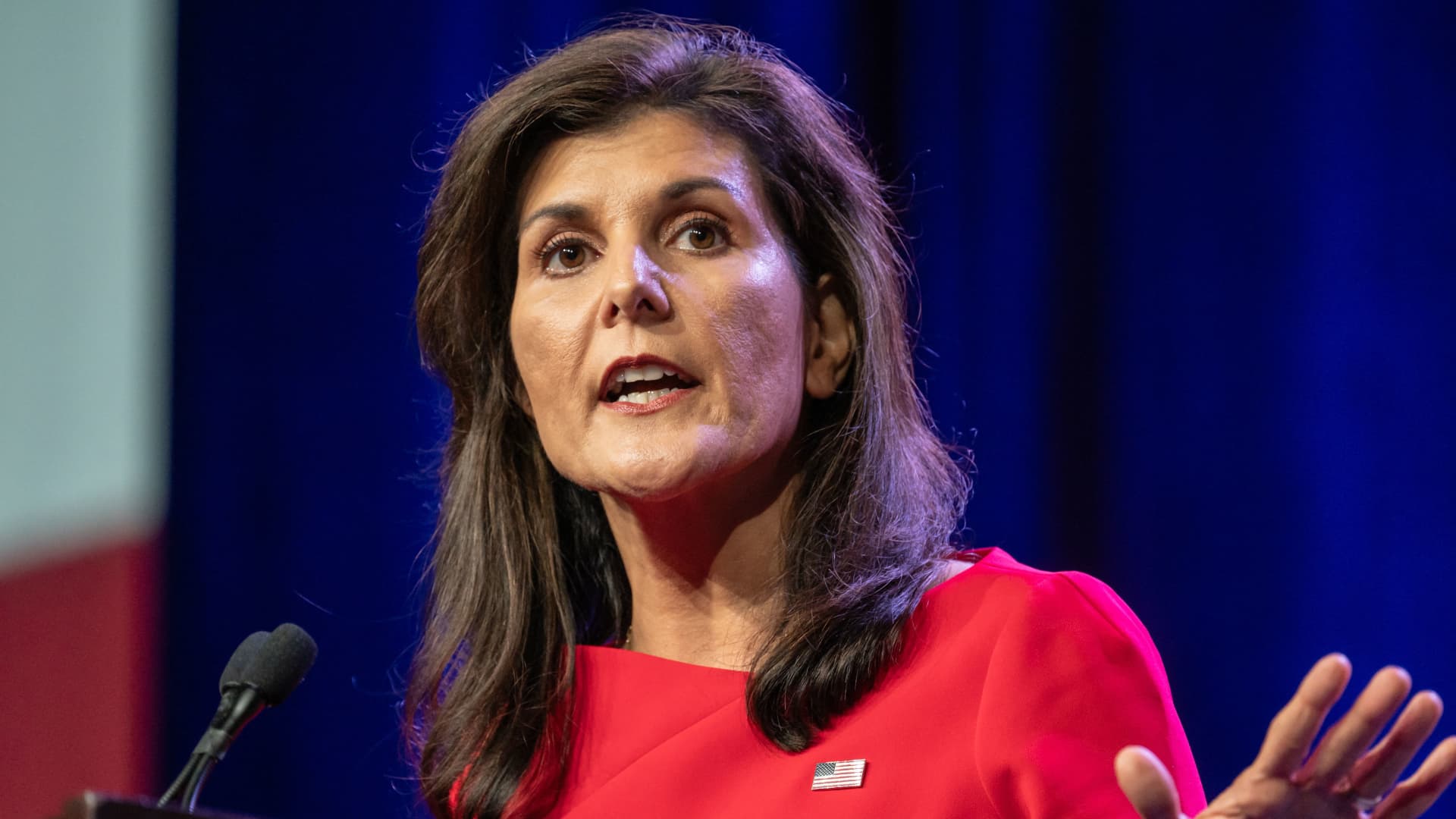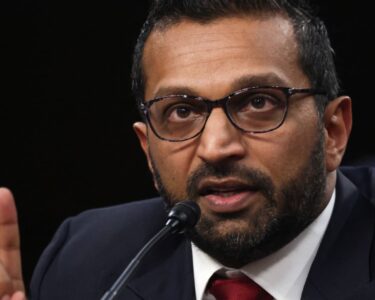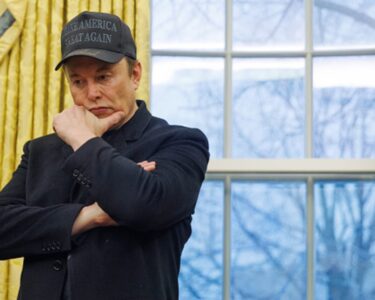Republican presidential candidate Nikki Haley appeared to add a caveat to her proposal that all social media users should be verified by name, suggesting Wednesday that Americans should still be allowed to post anonymously online.
Haley, one of the top contenders behind former President Donald Trump in the 2024 GOP primary race, reiterated on CNBC’s “Squawk Box” that “we need our social media companies to verify everybody.”
The former United Nations ambassador, who is also calling for social media companies to reveal their algorithms, argued that the spread of misinformation by anonymous bad actors poses a national security threat to the U.S.
“Russia, Iran and China, North Korea too, know that the cheapest form of warfare is to spread misinformation,” she said.
“Look at what happened with Israel. You want to know where all this pro-Hamas information is coming from? It is coming from foreign actors that are sowing chaos and division,” she said.
She had laid out her stance a day earlier in a Fox News interview in which she said users’ names should be visible on social media. “You’re going to get some civility when people know their name is next to what they say,” she said on Fox.
She doubled down in a podcast appearance that also aired Tuesday. “They need to verify every single person on their outlet,” Haley said, “and I want it by name.”
But Haley seemed to tweak her stance Wednesday morning, when asked on CNBC if she was calling for a ban on posting anonymously on social media sites like X, formerly Twitter.
“You’re not really saying that people can’t tweet” anonymously, she was asked.
“Do I think life would be more civil if we were able to do that? Yes,” she responded. “You should stand by what you say.”
“But no, you can have anonymous — I don’t mind anonymous American people having free speech, what I don’t like is anonymous Russians and Chinese and Iranians having free speech,” Haley said.
It was unclear if Haley envisioned that only American citizens would be able to post anonymously on social media sites, or if she would only want to ban anonymous posts from certain countries. It was also unclear how her carve-out for anonymous Americans would fit in with her proposal to “verify everybody” on social media.
Asked to clarify these points, a spokesperson for Haley’s campaign said, “Russia, China, and Iran are engaging in wide-scale information warfare. Ignoring this national security threat is dangerous and naïve.”
“Social media companies need to do a better job of verifying users as human in order to crack down on anonymous foreign bots. We can do this while protecting America’s right to free speech and Americans who post anonymously,” the spokesperson added.
Haley’s remarks about her social media proposal quickly drew waves of criticism online and from her Republican presidential primary rivals.
“You know who were anonymous writers back in the day? Alexander Hamilton, John Jay, and James Madison when they wrote the Federalist Papers,” Florida Gov. Ron DeSantis wrote on X in response to Haley’s interview on Fox.
“They were not ‘national security threats,’ nor are the many conservative Americans across the country who exercise their Constitutional right to voice their opinions without fear of being harassed or canceled by the school they go to or the company they work for,” the Republican governor wrote.
“Haley’s proposal to ban anonymous speech online — similar to what China recently did — is dangerous and unconstitutional. It will be dead on arrival in my administration.”
Entrepreneur Vivek Ramaswamy, another GOP primary contender, called Haley’s stance “disgusting.”






